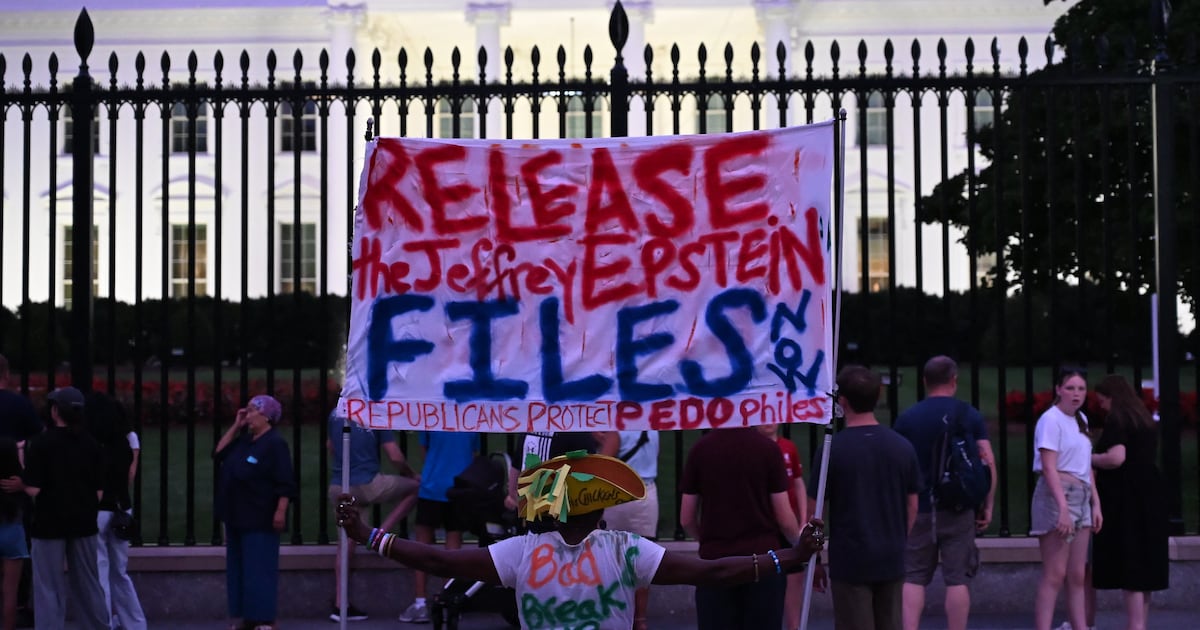World
Maria Farmer’s Allegations Renew Scrutiny of Trump’s Epstein Links

Maria Farmer’s allegations regarding her past encounters with Jeffrey Epstein and Donald Trump have resurfaced, drawing renewed scrutiny to Trump’s connections with Epstein’s network. In 1996, Farmer reported to law enforcement that she had been sexually assaulted by Epstein and his partner, Ghislaine Maxwell. During this period, she also learned of troubling incidents involving her younger sister, who was a teenager at the time and had a distressing experience at Epstein’s ranch in New Mexico.
Farmer, then in her mid-20s, urged the authorities to investigate not only Epstein but also his circle of influential associates, including Donald Trump. Particularly alarming for Farmer was Epstein’s pattern of cultivating relationships with powerful figures while pursuing young women. She reiterated her concerns during a 2006 FBI interview, although she acknowledged that she had no concrete evidence linking Trump’s actions to any criminal activity.
Investigative files concerning Epstein are extensive and remain largely unpublicized, raising questions about the extent of any potential involvement by high-profile individuals. Despite Trump’s previous associations with Epstein, law enforcement agencies have not formally accused him of any wrongdoing related to Epstein’s crimes. In recent comments, Trump called for the release of relevant grand jury testimony from Epstein’s prosecution, insisting he has nothing to conceal.
Farmer’s experience highlights how investigative records may contain material that could be politically damaging for Trump, regardless of whether it is pertinent to Epstein’s criminal conduct. She expressed her frustration about the lack of action taken by law enforcement regarding her allegations in both 1996 and 2006, particularly concerning Trump’s involvement.
In recounting her encounter with Trump, Farmer stated that it took place in 1995, shortly before she began working for Epstein. During a late-night visit to Epstein’s New York office, Farmer described feeling uncomfortable when Trump, dressed in a suit, hovered over her. Epstein reportedly intervened, telling Trump, “No, no. She’s not here for you.” Farmer recalled hearing Trump remark that he thought she was 16 years old at the time.
The White House has disputed Farmer’s account, with communications director Steven Cheung asserting that Trump never visited Epstein’s office and emphasizing that Trump severed ties with Epstein long ago.
Farmer, an artist, worked for Epstein in the mid-1990s, initially tasked with acquiring art but later overseeing the entrance at Epstein’s Upper East Side townhouse. Her tenure with Epstein included unsettling incidents, such as being groped by Epstein and Maxwell after being asked to provide a foot massage.
Despite Farmer’s allegations, she was not called to testify during Maxwell’s trial in 2021, although her sister, Annie Farmer, did provide testimony regarding Maxwell’s inappropriate conduct. Both sisters recall Farmer discussing her concerns about Epstein and influential figures, including Trump and former President Bill Clinton, with authorities in the 1990s.
Law enforcement records confirm that Farmer contacted the New York Police Department in August 1996, but the FBI has not released details of any related investigations. Notably, documentation from a later FBI interview aligns with Farmer’s account, indicating that she was advised to reach out to the FBI regarding her concerns.
Epstein faced legal consequences following a 2006 indictment and a subsequent plea deal that allowed him to avoid federal charges. In 2019, he was charged with trafficking underage girls and later died in custody under controversial circumstances.
As the investigation into Epstein’s network continues, questions linger about whether federal authorities pursued Farmer’s claims regarding Trump’s connections. Trump’s past remarks, including a 2002 statement referring to Epstein as a “terrific guy,” have drawn attention, although he has since distanced himself from Epstein. Following reports of further connections between Trump and Epstein, including a 2003 birthday greeting, Trump has vocally dismissed the allegations, labeling them as fabrications.
The ongoing discourse surrounding Farmer’s allegations and Trump’s associations with Epstein raises significant concerns about accountability and the breadth of Epstein’s influence within elite circles. As calls for transparency persist, the impact of these revelations on both public perception and legal proceedings remains to be seen.
-

 Top Stories3 months ago
Top Stories3 months agoTributes Surge for 9-Year-Old Leon Briody After Cancer Battle
-

 Entertainment4 months ago
Entertainment4 months agoAimee Osbourne Joins Family for Emotional Tribute to Ozzy
-

 Politics4 months ago
Politics4 months agoDanny Healy-Rae Considers Complaint After Altercation with Garda
-

 Top Stories4 months ago
Top Stories4 months agoIreland Enjoys Summer Heat as Hurricane Erin Approaches Atlantic
-

 World5 months ago
World5 months agoHawaii Commemorates 80 Years Since Hiroshima Bombing with Ceremony
-

 Top Stories3 months ago
Top Stories3 months agoNewcastle West Woman Patricia Foley Found Safe After Urgent Search
-

 Top Stories5 months ago
Top Stories5 months agoFianna Fáil TDs Urgently Consider Maire Geoghegan-Quinn for Presidency
-

 World5 months ago
World5 months agoCouple Convicted of Murdering Two-Year-Old Grandson in Wales
-

 World5 months ago
World5 months agoGaza Aid Distribution Tragedy: 20 Killed Amid Ongoing Violence
-

 World5 months ago
World5 months agoAristocrat Constance Marten and Partner Convicted of Infant Murder
-

 Top Stories4 months ago
Top Stories4 months agoClimbing Errigal: A Must-Do Summer Adventure in Donegal
-

 Top Stories4 months ago
Top Stories4 months agoHike Donegal’s Errigal Mountain NOW for Unforgettable Summer Views









